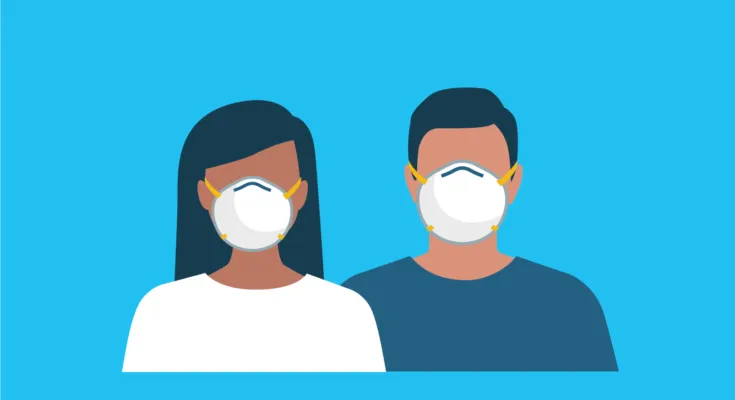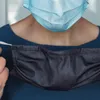Mask up even inside homes, government tells citizens amid staggering surge in second COVID-19 wave
Amid the second wave of the COVID-19 pandemic, the Indian government has told citizens that they should mask up even at home. The statement comes days after a new assessment in The Lancet said there was strong evidence to prove that the SARS-CoV-2 virus was transmitted through the air.
As a second wave of the coronavirus pandemic rips through the country, the government on Monday said it was time people start wearing masks inside their homes as well, and refrain from inviting guests.
Addressing a press conference here, NITI Aayog member (Health) Dr V K Paul said if there was a COVID-positive person inside the house, he or she must wear the mask so as to prevent other family members from getting infected.
"Rather, I'll say that the time has come that we start wearing masks even otherwise inside our homes. We used to talk about wearing it outside homes, but the way the infection has spread, it will be better if we wear mask inside our homes if we are sitting with someone," he said.

Representational Image
"But, definitely, if there is a COVID-19-positive person, that person must wear the mask and others inside the house also must wear a mask and the positive person should be kept in a different room," Paul underlined.
His statement came days after a new assessment published in The Lancet journal said there was consistent, strong evidence to prove that the SARS-CoV-2 virus, behind the COVID-19 pandemic, is predominantly transmitted through the air.
Paul added that people should also avoid stepping out of their houses unnecessarily and not invite guests at home.
He also suggested if the house lacks such facilities for isolation, then people may go to isolation centres, known as corona care centres.
Getting admitted to a hospital is not the only option, Paul said. "Hospital beds are used for the needy people."
Highlighting the importance of vaccination, Paul said, "We cannot let the pace of COVID-19 vaccination decline or slacken in the face of the emerging situation. In fact, it should be escalated and with that intent the government of India brought a revised (vaccination) policy. We believe and are confident that will bring in more acceleration," he said.
Time for community participation
AIIMS Director Dr Randeep Guleria, who also addressed the press conference, sought greater community participation to ensure optimal utilisation of hospital facilities.
"We see now there is unnecessary panic among people which is causing more harm than good. Those who test positive want to get admitted even if their oxygen saturation levels are normal and they have mild symptoms," he said.
"It is causing a lot of rush outside hospitals and suffering to genuine patients as they do not get proper treatment. Also, hoarding of drugs at homes is causing unnecessary shortage of essential drugs in markets and also leads to misuse of drugs," he added.
Underlining the importance of oxygen in the treatment strategy for COVID-19 patients, Dr Guleria said its misuse must be avoided.
There should be judicious use of oxygen therapy, he said, adding, hospital authorities should make sure there is no leakage of oxygen at their facilities, and also advised proning to increase oxygen levels in the body.
On the increasing demands for Remdesivir, Dr Guleria said the benefits of this drug in treating COVID-19 patients were not well established. The drug had not shown mortality benefits, and it was wrong to think of it as a magic bullet, he said.
It is only useful in moderate to severe cases on the fifth to seventh day, he said, adding there was no benefit in early phases, and taking it on first and second day may even cause side-effects.
In this disease, 85 percent people will have mild illness and they will get well with symptomatic treatment like fever medication or steam just like normal common cold, he said.
With 3,52,991 people testing positive for coronavirus infection in a day, the highest so far, India's total tally of COVID-19 cases has climbed to 1,73,13,163 while active cases have crossed the 28-lakh mark, according to the Union Health Ministry data updated on Monday.
Edited by Teja Lele








